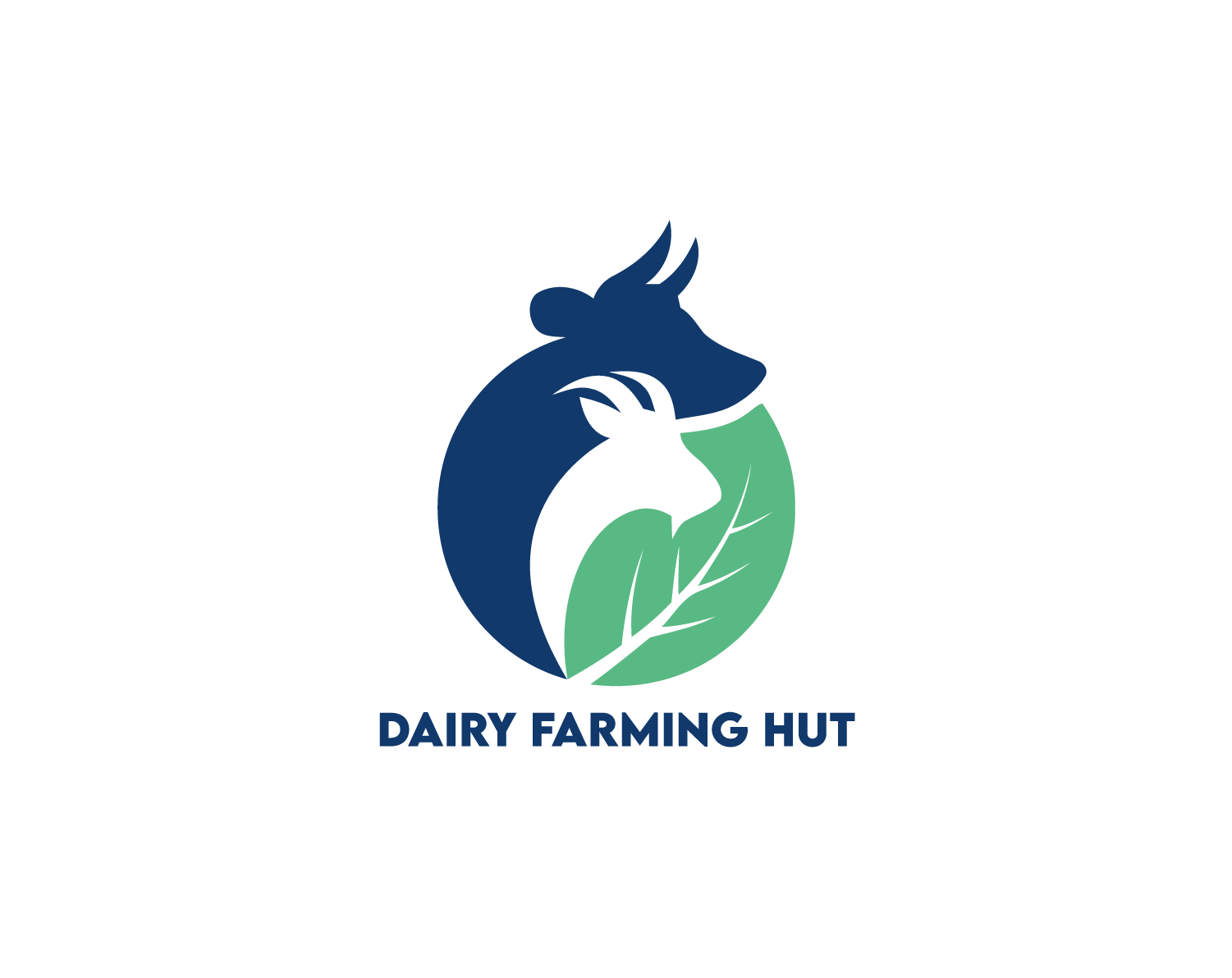Sheep provide humanity with a plethora of things that keep us healthy and warm. Its uses in many kinds of cheese, yogurts, medicines, and cosmetics have been with us for centuries. Indeed, we rely on them for our very survival, with wool being a primary source of warmth.
Choosing to have them on your farm or small homestead is a benefit to you and your community. The USA is one of the largest importers of sheep products, so having them on your own property is smart. It can contribute to keeping sourced foods at the local level.
Milk produced by ewes is actually more recommended and nutritious than cow’s or goat’s milk. Although Sheep's milk is a richer product than cow’s milk, its fat globules are smaller, making it easier to digest. This is also true compared to goat’s milk, making it the better choice when crafting cheeses.
Sheep’s milk comes with all the goodness we require on a daily basis such as magnesium, linoleic acid, calcium, and phosphorous. It also has a high A, B, and E vitamin content.
If you are considering having these beautiful bah-bahs around, be wise and take things into serious thought beforehand.
Sheep Don’t Like Being Alone
Sheep are a very social animal and find the most happiness and safety as part of a group. It’s always better to have other sheep around, but other buddies like goats, ponies, or donkeys will do.
At least one other sheep will help prevent stress. Stressed sheep will have a taxed immune system which also increases the chances of parasites.
They also tend to be more reactionary than other farm chattels as they are acute to immediate danger, thereby making sounds and running away. As this may be a good thing for when predators, like foxes and wolves, show up, it’s something to think about when milking them.
With Sheep, Think About What You Are Willing to Take On
Sheep need plenty of attention, especially when it comes to milking them. You, or another reliable person, must milk at around the same time every day; even over holidays, weekends, and times, you may not feel very well.
If you are going for milk, female sheep must also reproduce. So, you will have to study up on and know something about animal husbandry. You will also have to help her care for the lambs.
Their food supply requires more than just a pasture rich with grass. In order for sheep to produce milk, they have to have high-quality hay and a certain amount of good-quality feed. Do not feed them things intended for cows and goats because these are high in copper, which will kill your sheep in large quantities.
They must also have constant access to minerals specific to their diet and a consistent source of clean water.
Deciding to Raise Sheep
If you’re still willing to take on raising ewes, the next thing to consider is what your use of the sheep will be. Think about the following questions and make a pros-and-cons list:
- 1What will you use the sheep for?
- 2Will they only be used for milk?
- 3Will they be used for both wool and milk?
- 4Do you plan to have them as a meat source?
- 5If for milk, how much?
- 6If for wool, are you going for wholesale or making your own products?
- 7If for meat, will you be feeding only your household, or do you intend to sell it to the public?
- 8Do you intend to put them in shows and competitions?
Selecting the Best Dairy Sheep Breed Perfect for your Needs
When it comes to milk production, make sure you select a popular breed for large milk yields and long lactation periods. But if your use of the milk is more for personal use, one with a shorter lactation time may be better.
East Friesians Sheep Breed
East Friesians are German sheep breed and the most common in the United States, particularly in the upper Midwest and northern New England. They can produce around 1000 lbs of milk throughout a lactation period between 220 and 240 days.
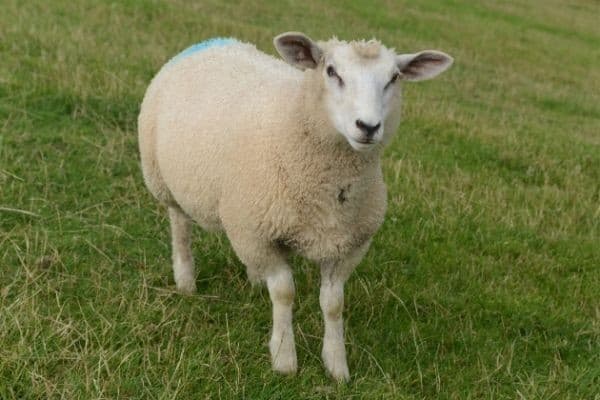
Their fleece is a low-luster white or brown and can be as long as 4 to 6 inches. They can produce wool anywhere from 9 to 12 pounds with 30 to 35 microns. Many farmers tend to go for hybrid species because purebreds are very fragile and need constant care.
Assaf Sheep Breed
If your purpose is for milk and meat, the Assaf may be the best option. These are a more recent addition to the gene pool, begun in Israel in the 1950s. It’s actually a cross between Awassi and East Friesian with an amazing plentitude in milk production.
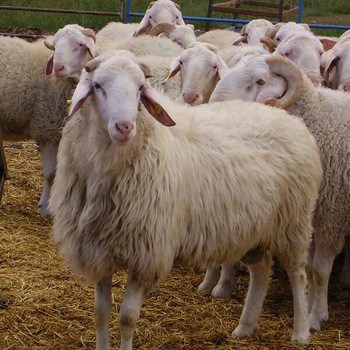
If you intend on selling milk and creating products like cheese and yogurt, the Assaf is fast becoming the preferred breed. They can produce 736 lbs of milk in a lactation period of 173 days.
Lacaune Sheep Breed
The second-most popular breed of sheep in the United States is the Lacaune. They come from France and have a high yield in milk with almost 400 lbs within a 160-day lactation period.
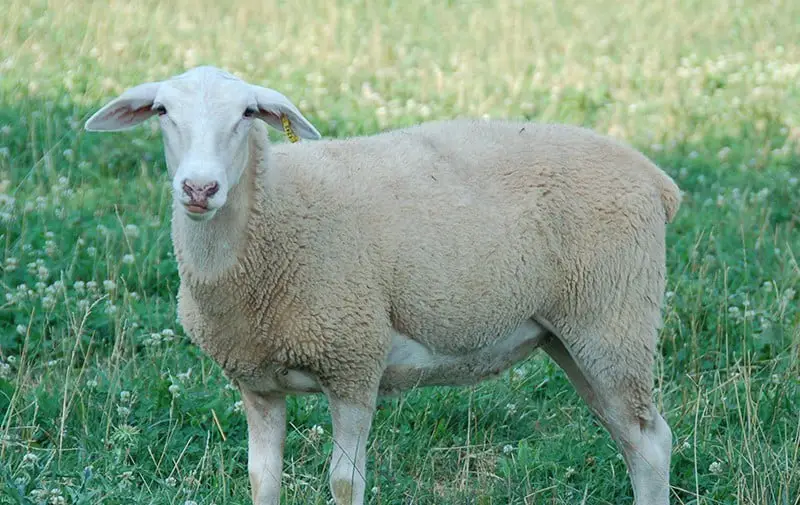
Source: Culture Cheese Mag (https://culturecheesemag.com)
Even though great producers of wool, they tend to shed it long before you get to shearing. They are often hybrid with East Friesians.
Awassi Sheep Breed
Coming from the Middle East, this particular breed is very new to the United States farming industry. Lambs appeared on U.S. soil back as early as 2013.
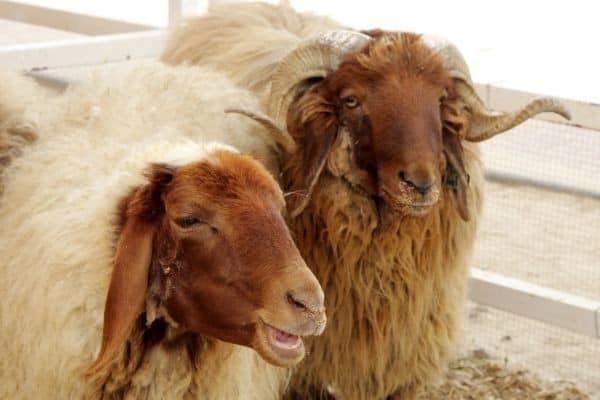
Yet, the arid and nomadic climate they thrive in makes them very hardy and efficient at producing milk from the grain they eat. They can produce anywhere from 88 to 176 lbs of milk in a 150-day lactation period.
Icelandic Sheep Breed
Although not considered a dairy pedigree, Icelandic sheep are hardy and can handle harsh winters. They don’t need as much constant care as other breeds and could be a great starter sheep for those who are not very experienced. This may be the best choice of ewe if you intend on having them for meat, dairy, and wool for personal and household use.
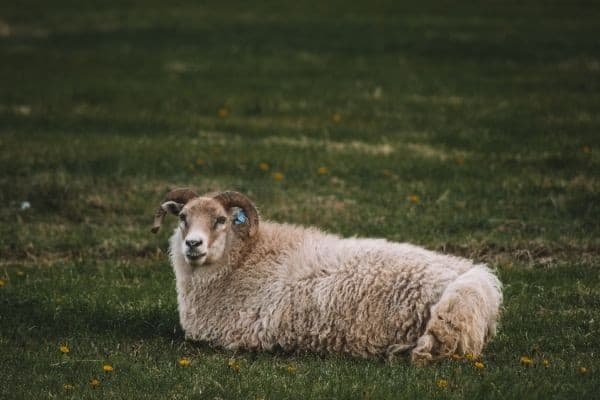
There isn’t much accurate information available about how much dairy they produce on average. Still, according to MilkingSheep, "A typical Icelandic sheep ewe can produce around 2 pints or 1 quart of milk a day, give or take. This is without the lamb suckling, and they will produce like this for about 2 months."
If the average ewes are milked 3 times a day, the amount can reach a liter. Even though milk production is low, many farmers worldwide swear by their use of them.
Your Choice of Sheep Breed Can Make All the Difference
Having a flock of sheep can be difficult. If you’re up for the challenge, you will have a beautiful addition to your farmyard and a time-honored favorite you can offer your family and community. It's all about being smart and choosing one for appropriate use.
Interested in Automated Sheep Milking? Check out this great Video!
